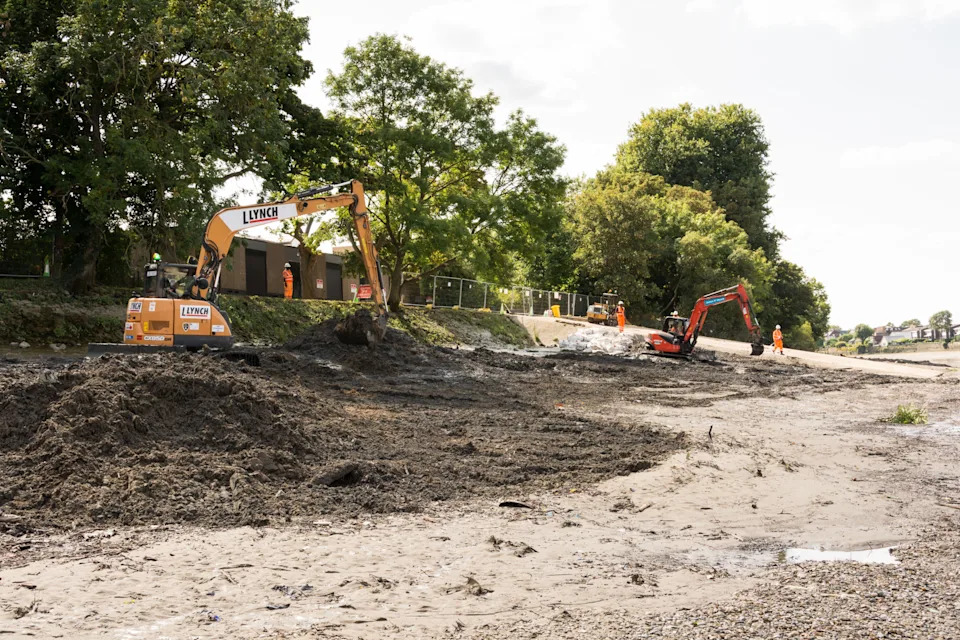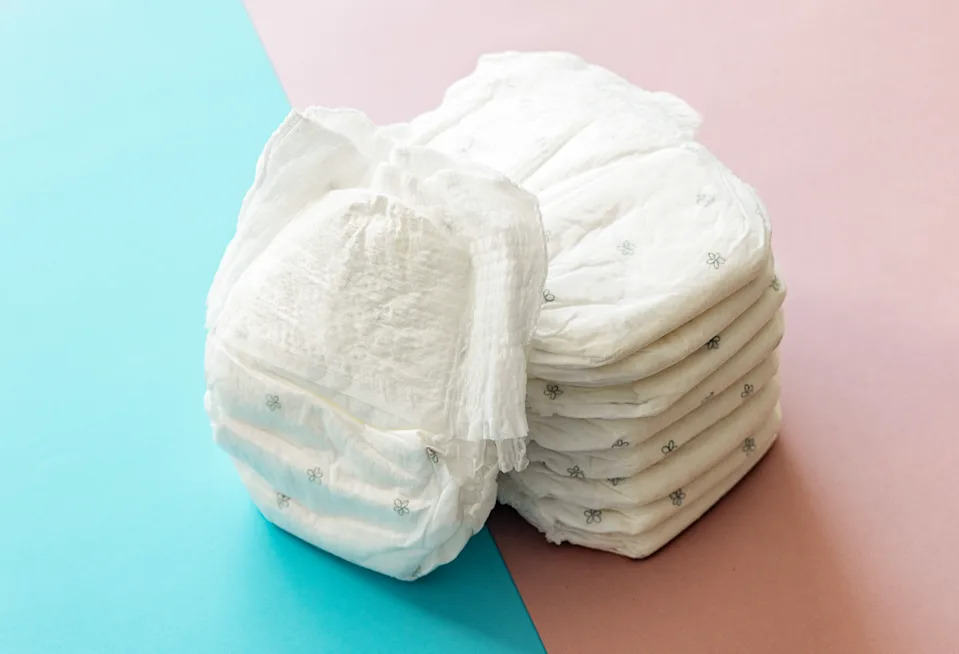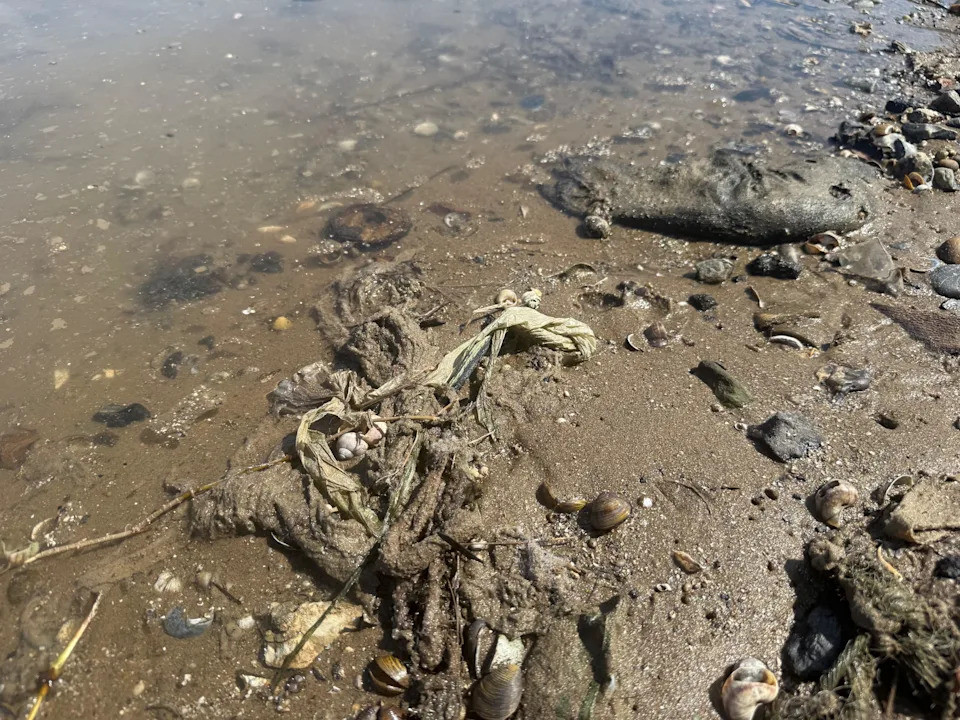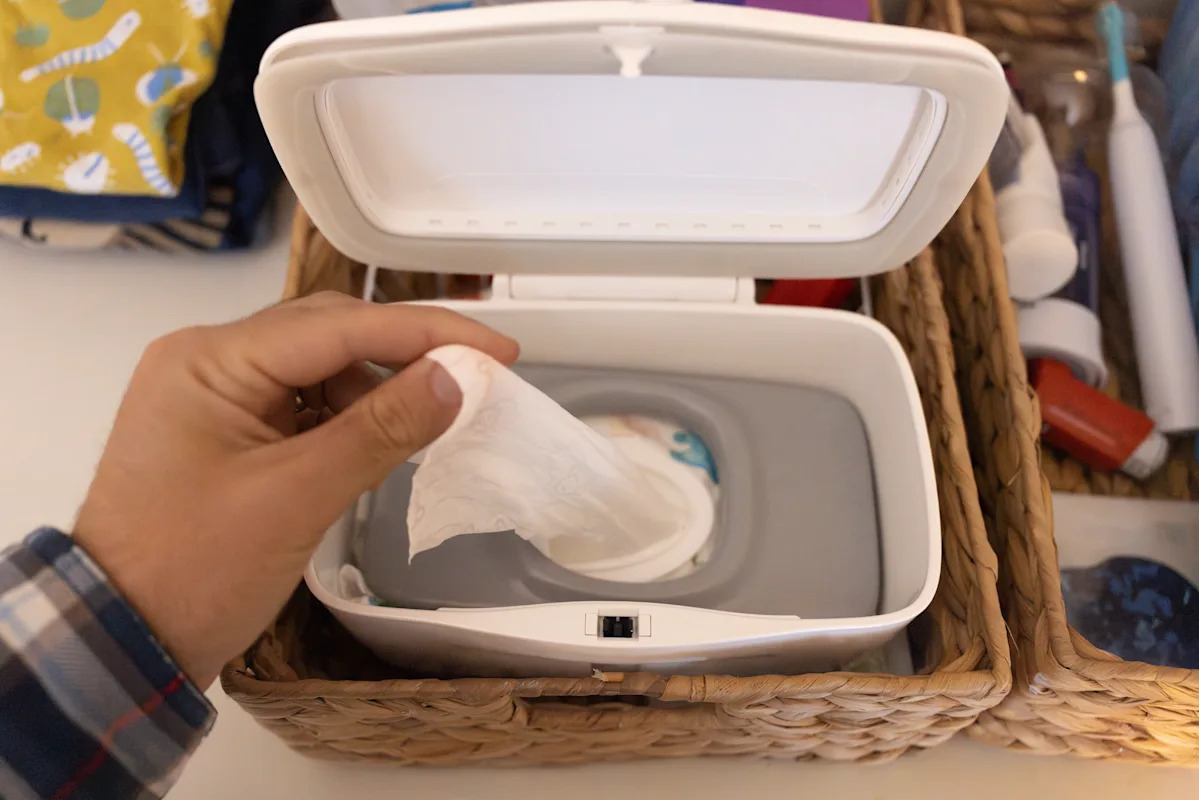Work has begun to remove the 180-tonne mass of rubbish in the River Thames known to locals as Wet Wipe Island.
The Port of London Authority is to use an eight-tonne excavator to remove the ‘island’, which is 820ft long and up to three feet high, in the Thames near Hammersmith Bridge.
The brown mass is composed of a huge amount of waste, but one of the most common things in the island is wet wipes.
Wet wipes are the most commonly found item on the Thames foreshore, according to river pollution activists Thames 21, and are changing the course of the Thames in at least six places.

Workers removing Wet Wipe Island. (PA)
Wet wipes may be convenient for many, especially when helping with young children, but they are not flushable or even recyclable.
But what other recycling mistakes do parents commonly make?
Yahoo News spoke to Catherine Green, sustainable cleaning expert at the brand Smol, about the mistakes parents commonly make. She said: “Being a parent is full-on and the last thing you need is feeling guilty that you’re getting stuff wrong, but if you’re looking to parent more sustainably, the simplest rule is: consume less, choose better, and think about where stuff ends up. A little bit of consciousness goes a long way.”
Wish-cycling dry or barely used nappies
Nappies can never be recycled, even if they are dry or little-used, Green explains.
But many people do put them in their plastic recycling bins hoping they will be processed, something known as wishcycling.

Nappies are made of composite materials and are never recyclable (Getty)
Some nappies come in packaging that says ‘recyclable’, which can be confusing — the packaging is recyclable, but nappies never are.
The reason is that they contain a mixture of different materials, which means the plastic cannot be reclaimed, which also means they can linger in a landfill for hundreds of years.
Green said: “Disposable nappies are non-recyclable. As well as the inevitable, they contain plastic and other materials and it’s this mix of materials which means they should always be popped in the general waste.”
Putting your recycling inside plastic bags
If you put recycling into your recycling bin inside a plastic bag, they will almost certainly end up being moved into the general waste
Green said: “Collecting your recycling in a plastic bag is likely to result in all your careful collection going straight to landfill — even if the bag is clear.
“It’s because plastic bags easily tangle in the recycling plant sorters, damaging machinery etc and so it’s just easier to send your bags full of items off to the tip or to be incinerated.”
Recycling food packets
Newer baby food pouches, along with jars and bottles are recyclable — but if you leave food in there, it will be a problem.
Green said: “Jars of food, packets and bottles; if they’ve still got food residue inside and haven’t been rinsed the chances are they’ll get rejected. Contamination from food and dirty bottles, jars and tins can also spread to everybody else’s carefully washed items from your street as soon as your recycling gets added to the mix.
“Sometimes whole lorry loads can be rejected. Always rinse your recycling free of food contamination to ensure it get the best chance of actually getting recycled once it reaches the recycling facility.”
Recycling paper towels
Wiping up with paper towels is a part of the parenting process, but just like wet wipes, paper towels are not recyclable.

Many household products made of plastic or paper are often not recyclable. (PA)
Even if they are relatively ‘clean’, they should go in general waste.
Green said: “Spills and messes are inevitable when you’re a parent but rather than reaching for single-use paper towels, I’d recommend opting for reusable, washable cloths.
“Parents can make the mistake of thinking that paper towels can be recycled, either with other paper recycling or food compost. However, the short fibres and food contamination mean that they should always go in general waste.”
Recycling the wrong products
Many baby products (including a lot of food pouches) are multi-layered, meaning they cannot be recycled, although some brands are bringing out recyclable versions.
Likewise, squeezy yoghurt tubes are composites, meaning they will not be accepted in kerbside recycling, although some supermarket recycling points can take them.

